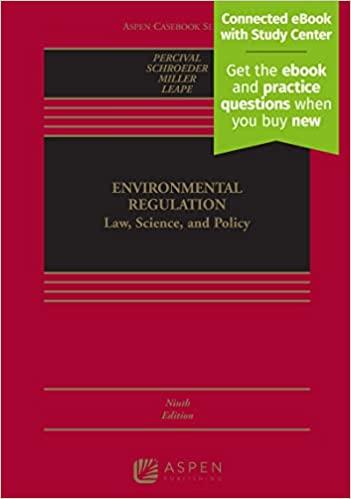Question
Silva is a college student who rents an apartment near the campus in Newark, New Jersey. When she signed the lease, the apartment was well
Silva is a college student who rents an apartment near the campus in Newark, New Jersey. When she signed the lease, the apartment was well maintained and in compliance with all applicable local building, health and safety codes. Midway through the lease, mold and mildew stains appear from within the walls due to faulty plumbing and the apartment was infested with rats and roaches. The New Jersey statute states that a "landlord at all times during the tenancy. . . shall comply with the requirements of applicable building, housing and health codes. . ." If the landlord does not comply with this requirement, the statute states that "Within 7 days after delivery of written notice by the tenant specifying the noncompliance [with any local ordinances] and indicating the intention of the tenant to terminate the rental agreement by reason thereof, the tenant may terminate the rental agreement. Upon seeing the mold and the apartment's uninvited guests, Silva writes a letter to her landlord describing the problem and her intent to terminate the lease if the problem is not corrected in seven days. One week has passed and the landlord has failed to correct the problem.
(1) Is Silva discharged from performing under the contract? Why
(2) Which type of discharge does this scenario most closely resemble? Why?
Step by Step Solution
There are 3 Steps involved in it
Step: 1

Get Instant Access to Expert-Tailored Solutions
See step-by-step solutions with expert insights and AI powered tools for academic success
Step: 2

Step: 3

Ace Your Homework with AI
Get the answers you need in no time with our AI-driven, step-by-step assistance
Get Started


